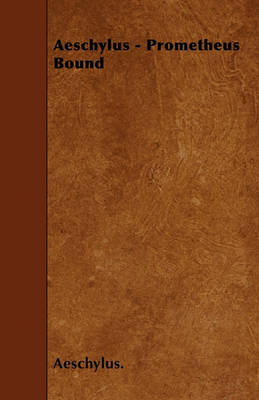Cambridge Greek and Latin Classics
2 total works
The myth of fire stolen from the gods appears in many pre-industrial societies. In Greek culture Prometheus the fire-stealer figures prominently in the poems of Hesiod, but in Prometheus Bound Hesiod's morality tale has been transformed into a drama of tragic tone and proportions. In the introduction, Mark Griffith examines how the dramatist has achieved this transformation, looking at the play from all angles - plot and characters, dramatic technique, style and metre. He includes a short section on the production of the play and on the questions of authenticity and date. The commentary guides the reader through problems of language, metre and content. An important feature of this volume is the appendix, which gathers together the existing fragments of the other two plays in the supposed Prometheus trilogy, quoting them in full in the original language and in translation, with short accompanying commentary. This is suitable for undergraduates and students in the upper forms of schools. It also deserves the serious attention of scholars. The introduction requires no knowledge of Greek and will interest students of drama and literature in other cultures too.
Professor Sommerstein here presents a freshly constituted text, with introduction and commentary, of Eumenides, the climactic play of the only surviving complete Greek tragic trilogy, the Oresteia of Aeschylus. Eumenides is of all Athenian tragic dramas the one most consciously designed to be relevant to the situation of the Athenian state at the time of its performance (458 BC), and seems to have contained daring innovations both in technique and in ideas. The introduction and commentary to this edition seek to bring out how Aeschylus shaped to his purpose the legends he inherited, and ended the tragic story of Agamemnon's family in a celebration of Athenian civic unity and justice. The commentary also pays detailed attention to the linguistic, metrical and textual problems to be encountered by the reader.

